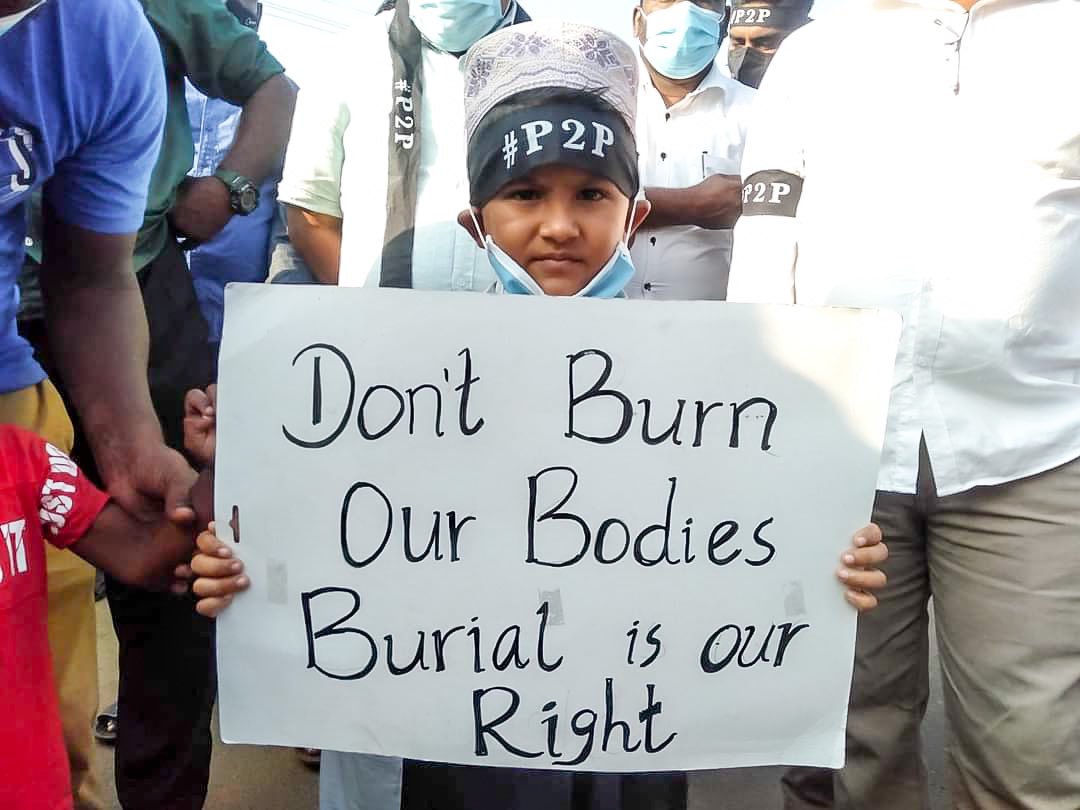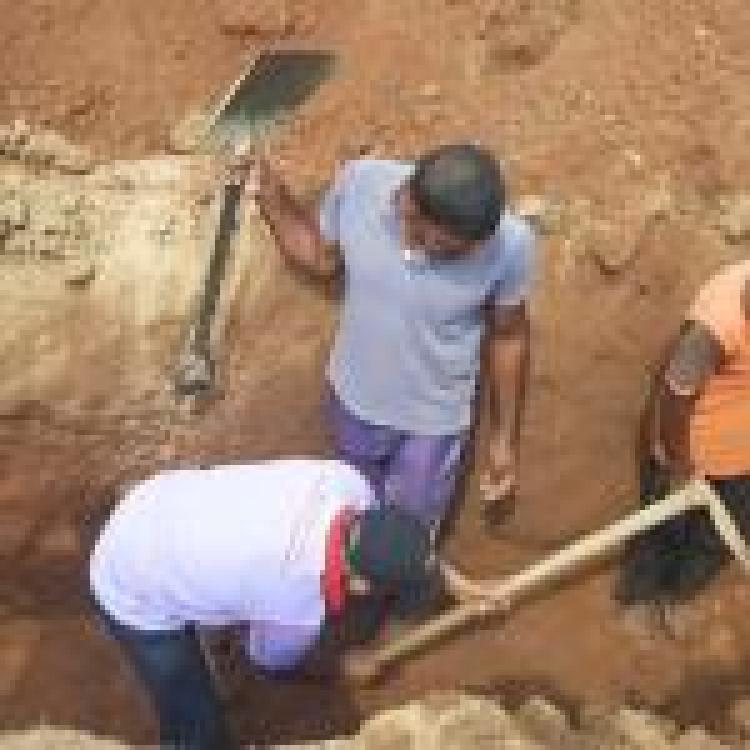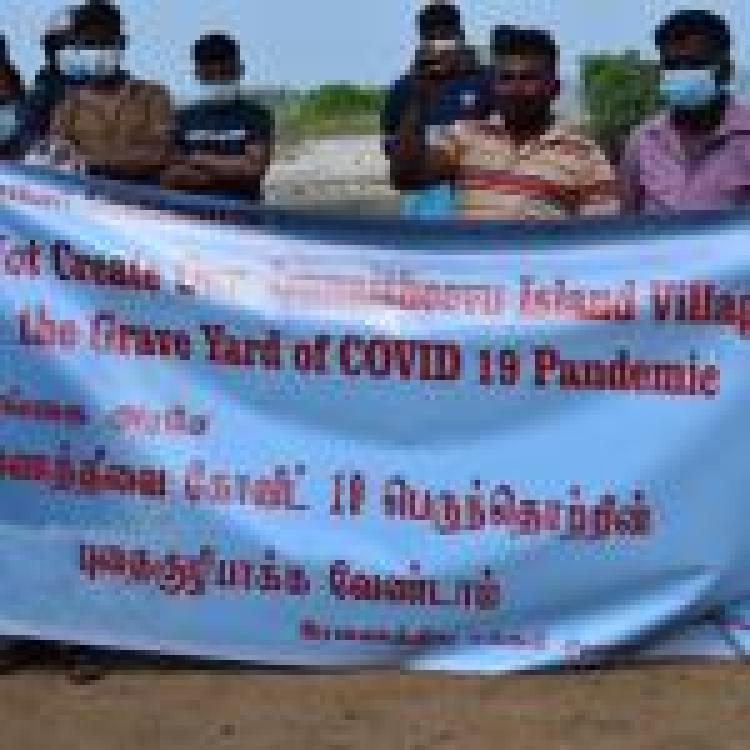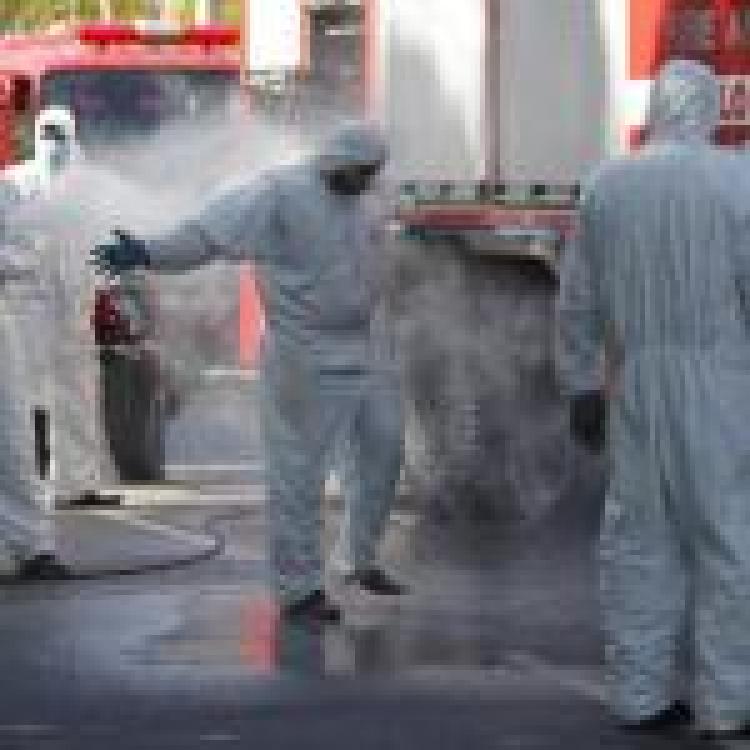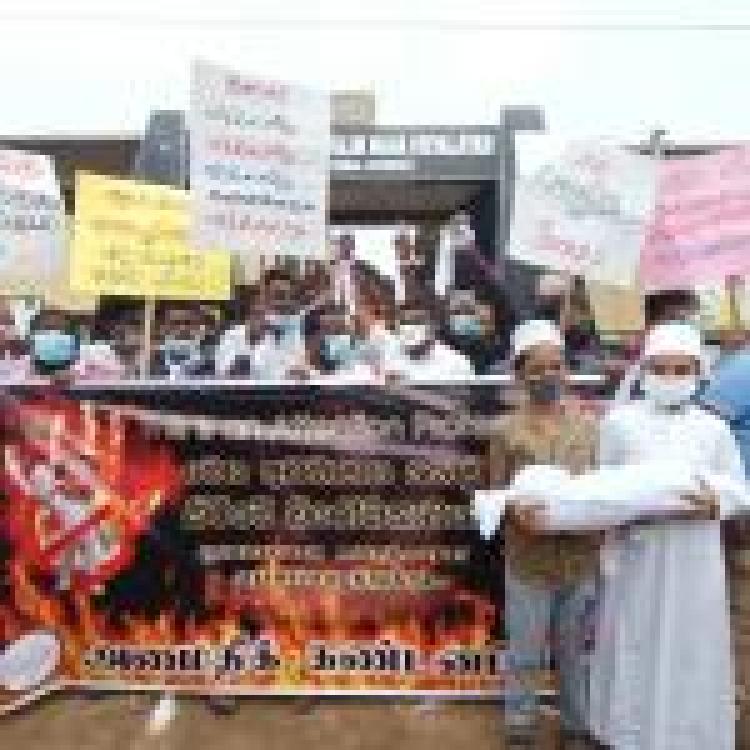A Muslim child holds a sign condeming the Sri Lankan government's policy at the P2P protest last year.
After almost two years of the coronavirus pandemic and amidst widespread protests, the Sri Lankan government announced it would end the widely condemned practice of requiring Muslim Covid-19 victims to be buried at a government-designated site in the North-East this week
In a special announcement from Sri Lanka’s ministry of health, the government said that “dead bodies can be disposed of adhering to normal procedure adopted before the COVID-19 pandemic”.
"The method of disposal, burial or cremation, at any cemetery or burial ground is at the discretion of relatives," said Health Director-General Asela Gunawardena.
Initially, the Sri Lankan government required the bodies of all COVID-19 victims to be forcibly cremated. The move sparked outrage from the island’s Muslims, as the practice of cremation directly violated traditional Islamic burial rights. Sri Lanka continued to enforce the policy despite World Health organisation (WHO) guidelines outlining that Covid-19 victims can be cremated or buried.
Amidst widespread pressure, the Sri Lankan government designated the island of Iranaitivu for burials, which was widely condemned and sparked protests by Tamil and Muslim civil society members. The decision had been criticised by many as a ploy by the government to induce tensions between Tamil and Muslim communities regarding cremations. Despite this, anti-government protests were staged following the announcement.
The Sri Lankan government has faced criticism for selecting prospective burial grounds for coronavirus victims almost solely in the island's North-East.
The latest move by the government to end the burial policy has raised eyebrows due to its timing.
As the AFP pointed out,
“The shift came as a UN Human Rights Council meeting in Geneva was set to discuss Sri Lanka's treatment of religious minorities as well as Colombo's overall rights record.”
Read more here.

